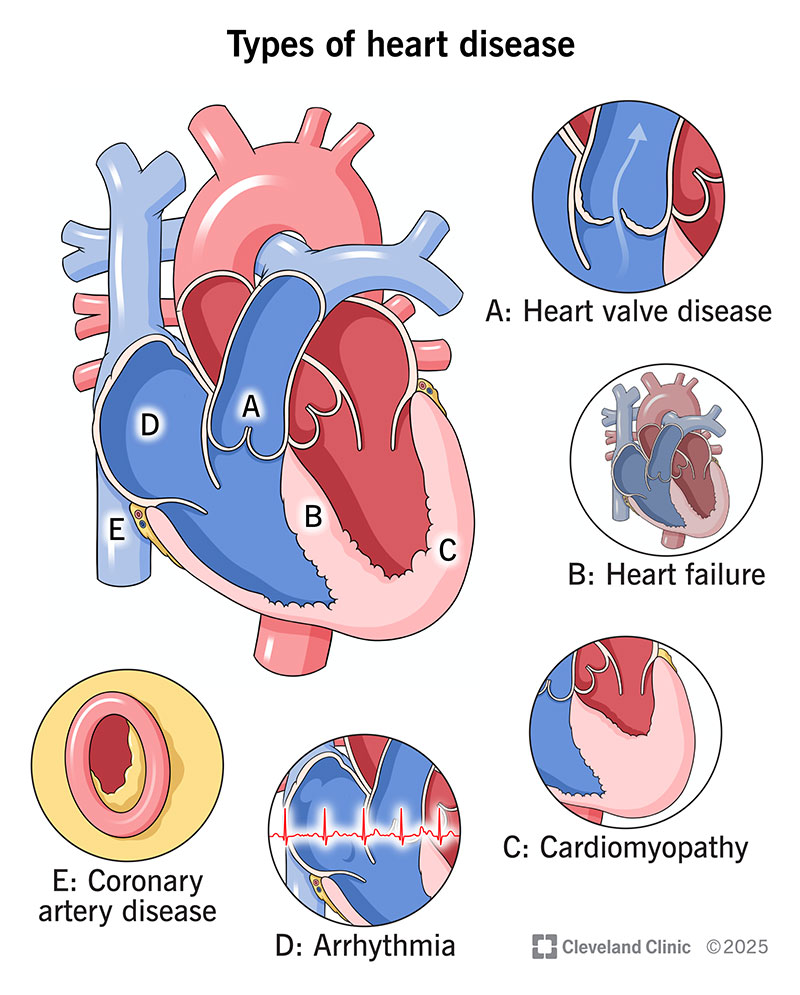Heart Disease: Symptoms & Causes - Cleveland Clinic

What is heart disease?
Heart disease is a variety of issues that can affect your heart. When people think about heart disease, they often think of the most common type — coronary artery disease (CAD) and the heart attacks it can cause. But you can have trouble with different parts of your heart, like your heart muscle, valves or electrical system.
When your heart isn't working well, it has trouble sending enough blood, oxygen and nutrients to your body. In a way, your heart delivers the fuel that keeps your body's systems running. If there's a problem with delivering that fuel, it affects everything your body's systems do.
Lifestyle changes and medications can keep your heart healthy and lower your chances of getting heart disease.
What are the types of heart disease?
Heart disease types include:
- Narrowing of your heart's blood vessels because of fatty deposits (coronary artery disease).
- Abnormal heart rhythms (arrhythmias).
- Heart valve diseases.
- Abnormal heart muscle (cardiomyopathy).
- Heart squeezing and relaxation difficulties (heart failure).
- Heart issues you have at birth (congenital heart disease).
- Issues with the fluid-filled sac surrounding your heart (pericardium).
How common is heart disease?
Heart disease is the top cause of death in the United States. In 2021, heart disease caused 1 in 5 deaths. That's nearly 700,000 people. Coronary artery disease, the most common type of heart disease, caused about 375,000 of those deaths.
Heart disease affects people from most ethnic backgrounds, regardless of sex.
Comments
Post a Comment